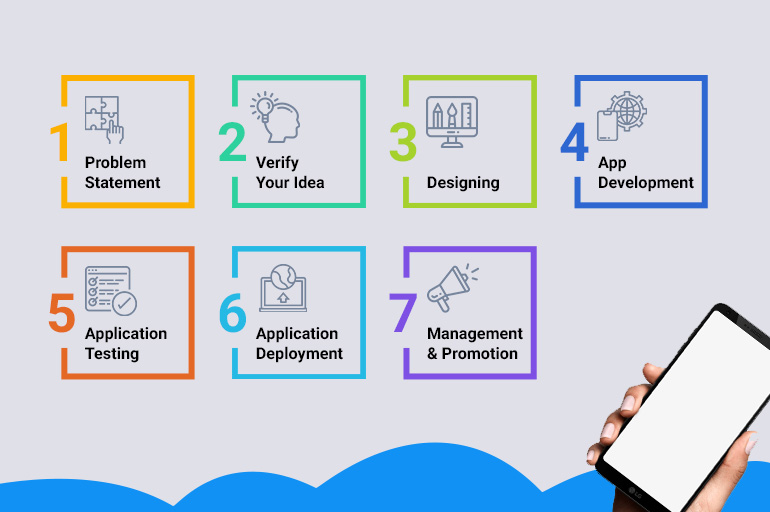
The Key Steps to Building a Successful Mobile App: From Idea to Launch
By Udit Agarwal

In the digital age, mobile applications are integral to modern life. As mobile usage skyrockets, businesses and entrepreneurs recognize the immense potential of building successful mobile apps. However, transforming an app idea into a fully-functional and profitable product requires careful planning, execution, and continuous innovation. This comprehensive guide will outline the critical steps to building a successful mobile app, from the initial idea to a successful launch.
Step 1: Idea Validation and Market Research
The first step in building a successful mobile app is validating your idea and conducting thorough market research. Validate the demand for your app by identifying a problem it solves or a need it fulfills for your target audience. Conduct surveys, gather feedback, and analyze competitors to understand the market landscape. Assess the market potential, identify your target audience, and define your unique selling proposition (USP) that sets your app apart.
Step 2: Define App Requirements and Features
With a validated app idea, it’s time to define your app’s requirements and features. Create a detailed list of functionalities and prioritize them based on their importance and complexity. Consider user experience (UX) and interface design at this stage to ensure seamless navigation and a visually appealing app.
Step 3: Choose the Right Platform and Technology Stack
Decide whether to build your app for iOS, Android, or both platforms. Choose the right technology stack based on your app’s requirements and your development team’s expertise, including programming languages, frameworks, and databases.
Step 4: Wireframing and Prototyping
Create wireframes and prototypes to visualize the app’s layout and flow. Wireframing helps in refining the user interface and gaining a better understanding of the app’s functionality. Prototyping allows you to test the app’s usability and gather user feedback before developing.
Step 5: App Development and Testing
With a clear plan and prototypes, move on to the app development phase. Divide the development process into sprints or milestones to ensure steady progress. Conduct rigorous testing to identify and fix bugs at each stage, ensuring the app’s stability and performance.

Step 6: User Interface (UI) Design and Branding
Invest in high-quality UI design and branding to create a visually appealing and cohesive app. A well-designed UI enhances the user experience and strengthens your brand identity.
Step 7: App Store Optimization (ASO)
Optimize your app’s metadata, including the title, description, keywords, and screenshots, to improve its visibility in app stores. ASO is crucial in attracting organic downloads and increasing your app’s ranking.
Step 8: Beta Testing and Feedback Collection
Before the official launch, conduct beta testing with a selected group of users to gather real-world feedback. Pay close attention to user suggestions and address any issues during testing.
Step 9: App Launch and Marketing
Finally, the moment has arrived to launch your app. Plan a strategic launch campaign to create buzz and attract potential users. Leverage social media, content marketing, influencer partnerships, and paid advertising to promote your app.
Step 10: Post-Launch Support and Continuous Improvement
The journey continues after the app launch. Monitor user feedback and app analytics to identify areas of improvement. Regularly update your app to fix bugs, introduce new features, and stay ahead of the competition.
Conclusion
Building a successful mobile app is a multifaceted process that requires meticulous planning, creativity, and adaptability. By following these key steps, you can transform your app idea into a valuable product that resonates with your target audience, drives user engagement, and leads to long-term success. Remember, the journey doesn’t end with the app’s launch; continuous improvement, customer feedback, and innovation are the pillars of a thriving mobile app in today’s dynamic digital landscape.